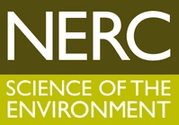GardenSafe: Plant nutrients
What's in your soil, Victoria?
Soil is a complex mixture of minerals, organic matter, gas, water and living organisms. Its composition is a product of your local environment and geology, and is altered by agriculture, industrial activity and home gardening practices. The balance of your soil mixture can influence the types of plants that can grow well in it.
GardenSafe assesses soil from 3 locations in your garden including your veggie patch. We focus on veggie patch soil as this is where your edible plants grow, and where you may have increased exposure to soil particles from working in the garden and consuming home grown produce.
GardenSafe assesses plant nutrients in your soil using X-Ray fluorescence spectrometry.
Plant nutrients
Garden soil plant nutrients provide a snapshot of the condition of your soil. These results are unlikely to impact human health but can influence how well your plants grow.
If your plant nutrients are outside of the optimum range desired, you can boost plant nutrients by adding organic matter (compost, leaves etc.) or commercial products (fertiliser, lime etc.).
The nutrients nitrogen (N), phosphorous (P) and potassium (K) are essential for plant growth. These nutrients are the basis of fertiliser, each supporting a different plant function.
GardenSafe reports the total concentration of two nutrients: P and K, in your soil.
| Nutrient | Abbreviation | Benefits | GardenSafe common range (mg/kg) |
|---|---|---|---|
| Nitrogen | N | Promotes growth of green foliage | Not assessed by GardenSafe |
| Phosphorus | P | Healthy roots, fruits and flowers | 3,100 - 3,200 |
| Potassium | K | Supports overall plant wellbeing | 5,900 - 6,500 |
The ideal balance of N-P-K depends on the veggies you are growing. For example, N is important for producing leafy greens like lettuce and kale. For tomatoes, however, too much N and not enough P will grow tall, leafy plants with limited fruit.
Commercial fertilisers contain a balance of these nutrients. Fertilisers for specific crops (e.g., tomatoes) can help to maintain the correct balance. Organic matter, including manure, compost and leaf litter can assist in improving the natural balance of N, P and K in your soil.
The table above shows the common range of phosphorus (P) and potassium (K) concentrations measured in 2000 GardenSafe soil samples. These values represent the range for which 95% of soil concentrations can be expected to occur (95% confidence interval). Soil nutrient results above or below this range do not indicate cause for concern.




ABOUT US
The 360 Dust Analysis program is a global research initiative to collect and analyse data on contaminants of concern that may be harmful to human health in homes and gardens..
CONTACT US
dustsafe@mq.edu.au
gardensafe@epa.vic.gov.au
ee.dustsafe@northumbria.ac.uk
LOCATIONS
Macquarie University, NSW, Australia.
Environment Protection Authority, VIC, Australia.
Northumbria University, Newcastle, United Kingdom.
IUPUI, Indianapolis, United States.